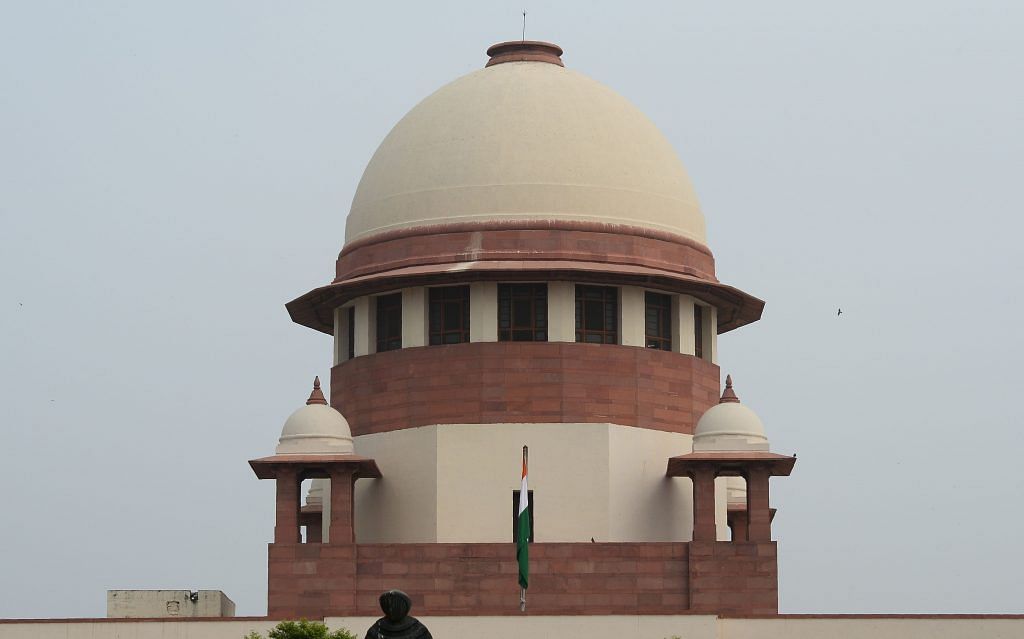Supreme Court also says states willing to give reservations to SCs and STs will no longer need to collect data on backwardness.
New Delhi: The Supreme Court Wednesday ruled states are free to give reservation in promotion to Scheduled Castes and Scheduled Tribes without collecting data of their backwardness.
The bench also said that backwardness will be presumed for SCs and STs but reiterated that it won’t be mandatory for states to provide this reservation.
The court partially modified its 2006 judgment (known as the M. Nagaraj judgment) but declined to refer it to a larger bench for reconsideration.
On 30 August, the five-judge constitution bench led by Chief Justice of India Dipak Misra had reserved its verdict on a batch of petitions that sought the reconsideration of the Nagaraj judgment, which decreed that states were not required to provide quota benefits to people from the Schedule Castes and Schedule Tribes working in the public sector.
States were allowed to make provisions for this after they collected quantifiable data that indicated the backwardness of a particular community, as well as proving its inadequate representation in the public sector.
Also read: ‘By revisiting reservation in promotions, Supreme Court is opening a Pandora’s Box’
The petitioners had asked whether the concept of a creamy layer, currently applicable to the Other Backward Classes (OBCs), could be extended to the SC/ST community as well.
“Suppose there was a caste which was backward 50 years ago and now it has sections of creamy layer. Why can’t court say don’t treat unequals as equals… because the whole idea (behind reservation) is to give a leg up to those deserving, not to someone who already has both legs up on the fan,” said Justice Rohinton Nariman, one of the five judges on the bench had said earlier.
The arguments
In November 2017, the apex court had referred a batch of pleas seeking reconsideration of its 2006 M. Nagaraj judgment before a larger bench. A five-judge bench comprising Chief Justice of India Dipak Misra and justices Kurian Joseph, Rohinton Nariman, Sanjay Kishan Kaul and Indu Malhotra heard the matter over the month of August.
M. Nagaraj, the retired Bengaluru-based PWD engineer who had won the fight against reservation in promotions, said it would set a dangerous precedent if the Supreme Court agreed to reconsider the judgment after more than a decade. Speaking to ThePrint, Nagaraj had said asking for a reconsideration of the judgment after 12 years was merely a ploy by the Centre to appease the backward classes. “I am not against reservation in appointments,” Nagaraj had said, clarifying his stand.
Also read: BJP & Congress have a new headache before MP polls: A tribal doctor & retired IAS officer
The Centre, meanwhile, submitted that affirmative action would be illusionary if reservations in promotions were not given to the SC/ST category.
Attorney General K.K. Venugopal, representing the Centre, added that SC/STs were presumed to be backward due to deprivation of opportunities for more than 1,000 years. Atrocities against them occur even today, he had pointed out.
The Centre said it was a “situation of impossibility” to apply the conditions laid out in the 2006 judgment in every case. It further sought 22.5 per cent (15 percent SC and 7.5 per cent ST) promotional posts reserved in the government sector.
Senior advocate Rakesh Dwivedi, representing parties opposing the quota in promotions, had said that earlier there was a presumption of backwardness amongst the beleaguered communities. He submitted that once the SC/ST employees joined public service, the presumption of backwardness “vanished”.
